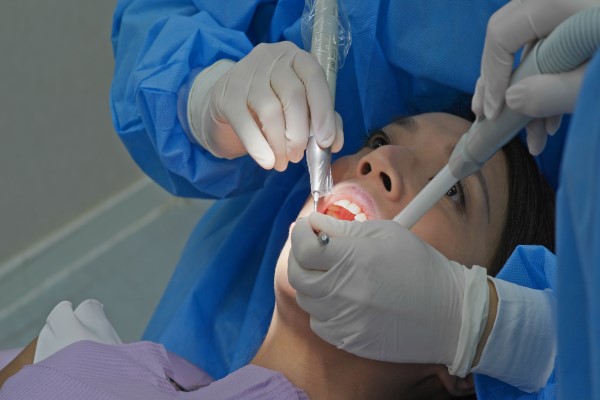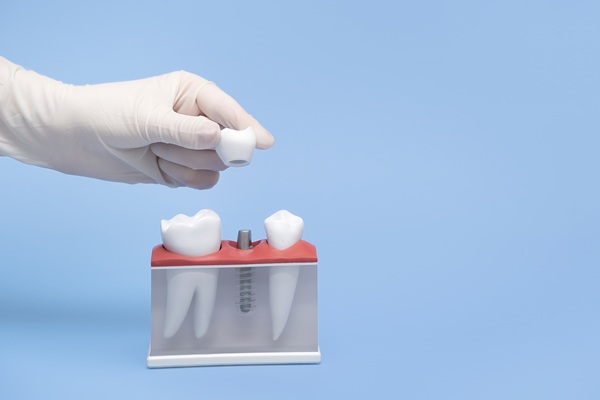How Scaling and Root Planing Can Save Your Smile

Scaling and root planing is the first line of treatment for gum disease. Periodontal disease in its early or advanced stages affects millions of people in the United States. Without proper treatment, gum disease can cause bone and tissue loss, and eventual tooth loss. The dentist performs scaling and root planing to reverse the effects of gum disease and save the person’s smile.
Healthy gums mean a healthy smile
The jawbone holds the tooth securely in its socket. Therefore, bone must remain free of bacterial infection, as this may cause damage and potential tooth loss. The gums serve as a protective barrier between the bone and the bacteria plaque in the mouth.
When plaque builds up on the teeth, they cause gum irritation, which makes the start of gum disease. This may cause redness and swelling, as well as bleeding when flossing. If the condition is not treated promptly, it will progress into its advanced stage, periodontitis. At this point, the damage is irreversible and the teeth may be threatened.
The accumulation of bacterial plaque causes a gradual gum recession from the teeth. This creates small gaps where plaque can gather and cause infections. The gap continues to widen and the infection travels down to the bones and tissues that support the teeth. Once these tissues are damaged, the teeth will loosen in its socket. The key is to prevent things from getting that far. This is where scaling and root planing comes in.
The effectiveness of scaling and root planing
The dentist will recommend the procedure if an examination of the teeth and gums reveals gum disease. Poor oral hygiene is the main cause of gum disease, but the risk factors include poor nutrition, smoking, aging, hormonal changes and family history. Scaling and root planing procedures can take multiple dental visits and are usually done in two stages.
First stage: Scaling is a non-surgical procedure, but the dentist will administer local anesthesia to numb the patient and reduce discomfort. Using ultrasonic devices and handheld tools, the dentist will clean the plaque above and under the gums.
Second stage: Next is root planing, which involves smoothing the tooth root with a scaling tool to stimulate gum reattachment to the teeth.
The patient will need to visit the dentist every two months for a periodontal assessment following the treatment. The routine checkup will include a dental cleaning, an examination of gum tissues and measurement of pocket depth.
Oral health measures
Gum disease sometimes occurs without symptoms. Therefore it is essential to go for regular dental checkups. A good oral hygiene routine is essential to prevent periodontal disease and to keep the oral cavity healthy. Dentists recommend:
- Using fluoride toothpaste to brush at least twice daily
- Flossing daily to clean food debris from hard-to-reach places
- Replacing toothbrush every three months
- Rinsing the mouth with antimicrobial dental rinses
The takeaway
During routine checkups, the dentist will detect signs of gum disease and recommend scaling and root planing to save your smile. Remember to book an appointment with the dentist if there are any abnormalities such as bleeding or pain.
Request an appointment here: https://smilesdental.com or call Smiles Dental Care at (650) 563-1180 for an appointment in our Mountain View office.
Check out what others are saying about our dental services on Yelp: Root Scaling and Planing in Mountain View, CA.
Recent Posts
The CDC states that gum disease, also known as periodontal disease, is one of the leading oral infections in the United States. In addition, the National Institute of Health cites it as the most common culprit for adults losing teeth. Because the early stages of periodontal disease often do not have noticeable symptoms, many patients…
The CDC reports that almost half of adults in the United States have a form of gum disease, also known as periodontitis or periodontal disease. For adults over 65, this number increases to 70%. This rampant disease is largely preventable, yet the subtle signs and symptoms in the early stages leave many patients unaware that…
It is easy to assume all gum disease is the result of poor oral hygiene. In many cases, it is. However, red or swollen gums can also be an indication of other health concerns completely unrelated to oral care. Because these conditions can be serious, it is important to pay attention to any changes or…
Early detection is important when it comes to getting ahead of any ailment, gum disease included. When caught early, gum disease can be easily treated but advanced gum disease cannot be reversed. Depending on the severity, the different stages of gum disease come with varying symptoms.In its early stages, gum disease is medically known as…


